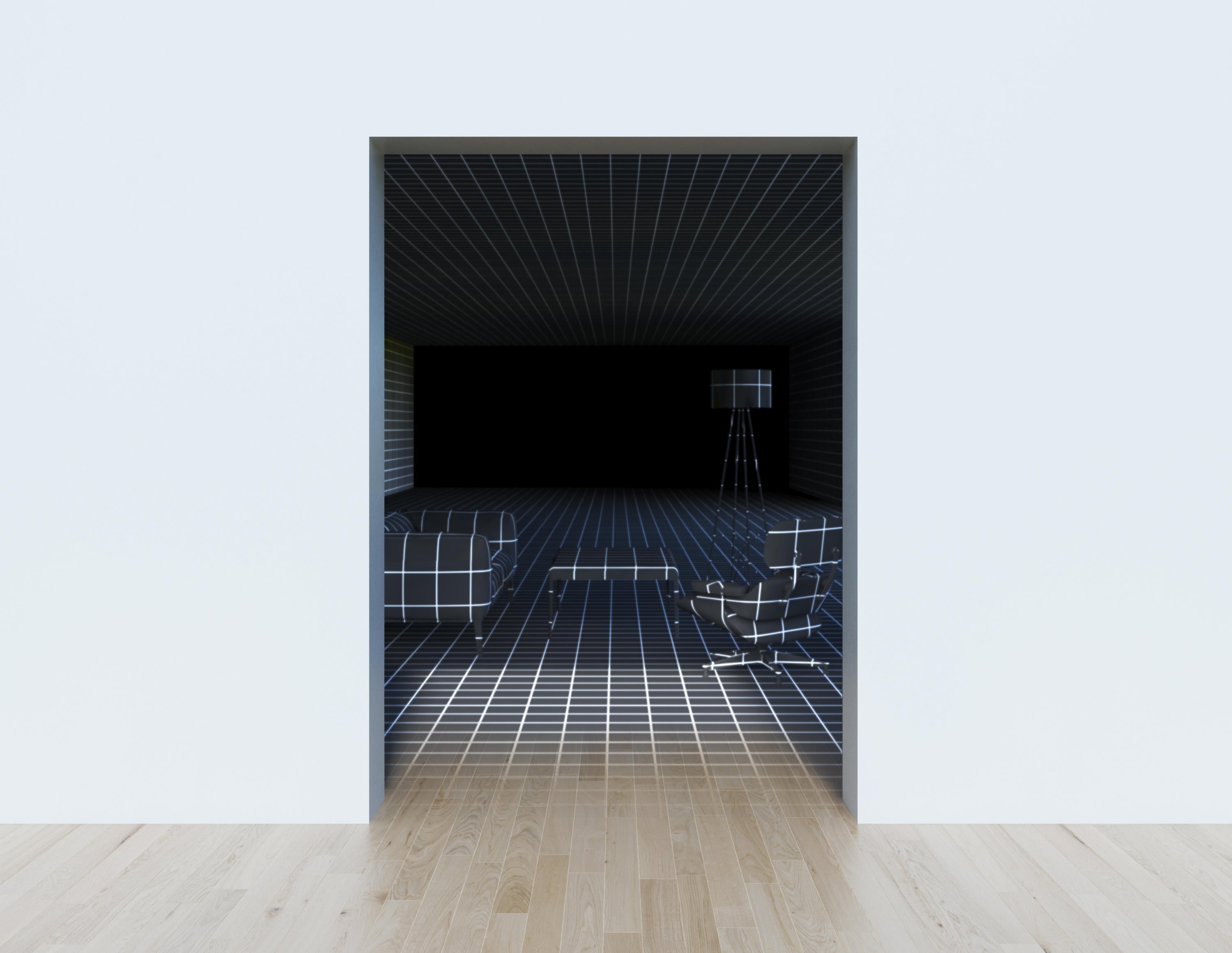
Of the thesis entitled: Step Into The Void: A Study of Spatial Perception in Virtual Reality
Abstract:
The
introduction
of
virtual
reality
(VR)
into
the
architectural
profession
offers
an
unprecedented
opportunity
to
experience
unbuilt
designs
at
full
scale.
The
premise
of
the
technology
is
that
it
gives
users
the
illusion
of
being
in
another
place
by
replacing
their
field
of
vision
with
a
digital
image.
While
VR
technology,
for
the
most
part,
can
only
simulate
visual
sensations
at
this
point
in
its
development,
it
has
demonstrated
in
various
applications
that
it
can
elicit
visceral
reactions
to
representations
of
architectural
space.
Because
VR
is
relatively
unfamiliar,
especially
in
architecture,
there
is
a
need
to
identify
the
technology’s
strengths
and
weaknesses
so
that
it
can
be
appropriately
utilized
in
practice.
The
goal
of
this
thesis
is
to
further
the
understanding
of
spatial
perception
in
VR.
Perception
of
space
is
affected
by
many
visual
factors,
like
the
shape
of
the
space,
details,
and
how
crowded
the
space
is.
A
study
was
conducted
at
the
School
of
Architecture,
involving
a
set
of
experiments
wherein
participants
attempt
to
position
the
walls
and
ceilings
of
a
series
of
rooms
to
match
a
given
set
of
dimensions.
Each
room
is
designed
slightly
differently
to
test
the
aforementioned
aspects
of
spatial
perception.
These
exercises
are
completed
once
with
orthogonal
architectural
drawings
and
once
with
VR.
In
most
cases,
participants
were
more
accurate
when
using
orthogonal
drawings
to
complete
the
exercises.
However,
participants
created
rooms
that
were
more
similar
to
each
other
when
completing
the
exercises
in
VR,
which
suggests
that
VR
might
be
more
effective
than
orthogonal
drawings
in
imparting
a
common
understanding
of
space
to
different
people.
Some
results
from
the
experiments
might
indicate
that
atmospheric
design
elements
may
be
more
effectively
represented
in
VR,
but
further
research
is
required.
The examining committee is as follows:
Supervisor: David Correa, University of Waterloo
Committee Members: Val Rynnimeri, University of Waterloo, Terri Boake, University of Waterloo
External Reader: Parantap Bhatt, OCAD University
The committee has been approved as authorized by the Graduate Studies Committee.